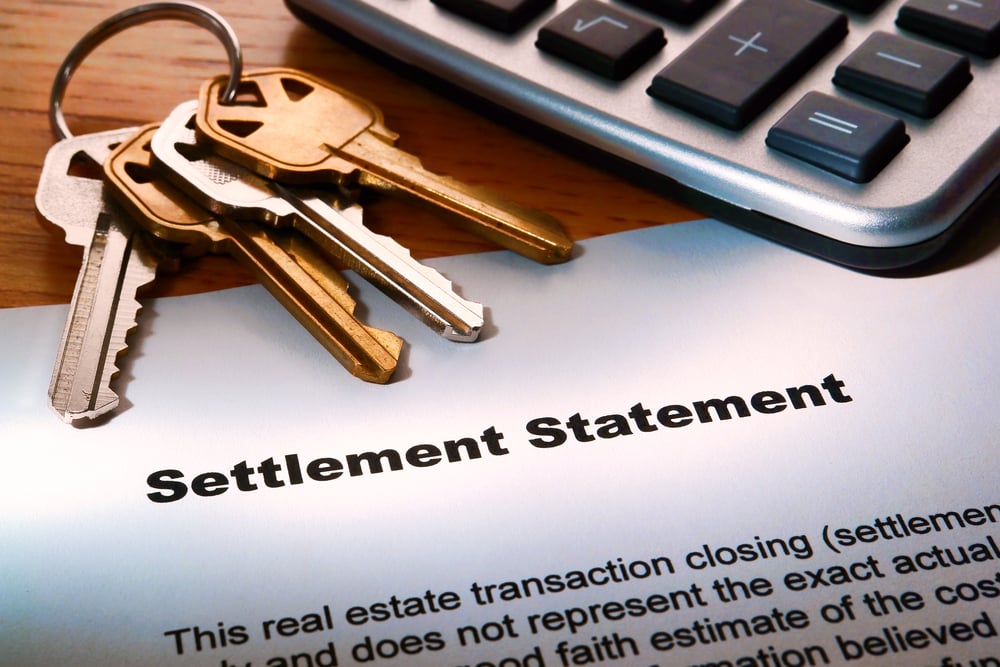How Do You Know When an Estate is Settled?

An estate settlement occurs when the court approves the final report submitted by the executor or administrator. At the same time, the executor's report contains details of payments of the deceased's debts, including taxes and loans. In contrast, any receipts from the sale of assets go to heirs or will beneficiaries.
Furthermore, estate settlement is a matter of public record; hence, you can quickly get information from court records on whether an estate has been settled. Likewise, how you know when an estate is settled is a question of interest, especially if you are a family member of the beneficiary. Moreover, creditors are also interested in knowing the status of the settlement of an estate.
Since legal settlements of an estate is a daunting task, therefore staying up-to-date with developments is vital for stakeholders.
Let us move forward to study more about the settlement of will.
Estate Settlement Process
Since an estate settlement goes through court and can take longer than usual, it is better to start the wheels turning immediately. On average, a straightforward settlement of a single house and a few bank accounts takes 6-8 months. In comparison, a complex estate could take years.
Furthermore, if there is a will, an executor is responsible for the settlement of the estate. However, if the deceased has not nominated anyone as executioner, the court will appoint an executioner to oversee the settlement.
Here is the process which confirms estate settlement.
-
Information Gathering
The first step is gathering the necessary information to initiate the settlement process. It generally includes two primary documents.
- The Will: Firstly, locate the will of the deceased. You can quickly get this document by contacting the lawyer of the deceased. However, if there is no lawyer, you must do it by the deceased person's email, home, office, or deposit box.
- Death Certificate: Since you must produce a death certificate at numerous points during the settlement process, immediately get a copy from the family. Furthermore, make multiple copies of the certificate to make it readily available when required.
-
Deciding about an Attorney
Many people look for an attorney; however, it is just a misconception. You can efficiently perform this duty without hiring an attorney. However, having a law expert with you while settling an estate is better to avoid any mis-happening.
The following reasons will push you to hire an attorney.
- If you are dealing with a probate sale.
- The estate is complex (like a business or multiple assets).
- More than the estate is needed to pay off debts.
- There are state and federal taxes involved in the settlement.
- Family members do not hold eye to eye, and you sense a conflict during settlement.
-
Will Filing with Probate Court
The estate settlement starts when you file a petition with the court. The critical thing to note is that you must file a petition, even if you are already nominated as an executioner in the will. The court will approve the petition to authorize you to start managing estate affairs legally. The court will issue a Letter of Administration to the executioner, formally beginning the estate settlement.
-
Sending Notifications
Since businesses and agencies do not directly receive notifications about the death of an individual, they start by sending notifications to the following institutions.
- Banks
- Utility companies
- Social Security administration
- Credit card companies
- Relevant health insurer
- Any other business the deceased had financial dealings
However, keep a record of all notifications, letters, and emails, as you might have to present them as court proof later. Furthermore, you may also have to issue a notice of death in a local newspaper. It will allow creditors to contact and make their claims.
-
Communicate to Beneficiaries
Next, contact all estate beneficiaries and inform them about your appointment and subsequent actions. In addition to family members, you must inform organizations if any are mentioned in the will.
-
Assets Appraisal
Moving on, you need to take into account all assets of the deceased and have them appraised. While doing so, ensure you take all types of inventory and debts. It is better to make a spreadsheet of all assets and liabilities. Likewise, includes intangible assets like a copyrighted book, a patent, etc.
-
Setting up a Bank Account
A key estate planning milestone is opening a new bank account to hold financial assets. You will use this account to pay taxes, burial fees, and debts and deposit any money owed.
Furthermore, you must get a tax ID before opening a bank account.
-
Collect Money and Pay Debts
After collecting insurance benefits, wages, and other owed amounts, deposit the money in the newly opened bank account. Moreover, you will also pay debts and other liabilities from the same account.
Moreover, you may need to sell assets if the estate cannot meet payable obligations. It gets tricky here; as an executioner, you must ensure that assets are disposed of at the best possible rate.
If debts are more than assets, it becomes an insolvent estate, and the law will decide which creditors are paid first.
-
Pay Taxes
You must file tax returns on Form 1040 or 1040-SR for the year of death. If the deceased's assets exceed $600 annually, you must file a return through Form 1041.
However, if assets are transferred to beneficiaries, you will file a return through Form 706.
-
Assets Distribution
The next step is the distribution of assets upon payments of taxes and debts.
To avoid conflict, always get a receipt bearing signatures and dates from the concerned beneficiary. It is one of the most challenging tasks to perform while performing an estate settlement. Therefore, take utmost care and keep a record of every disbursement.
-
Close the Estate
After completing the above steps, you will file a final accounting with the probate court. Furthermore, hand over a copy of the same to all beneficiaries.
Generally, a closing document contains the following information.
- Income/assets received
- Losses (if any) to the estate
- Payments made to creditors
- A detailed accounting of inheritance to beneficiaries
Frequently Asked Questions
How long do most estates take to settle?
Simple estates take up to 6-8 months, but complex estates may take several years.
How do beneficiaries receive their money?
If beneficiaries are designated, they automatically transfer bank accounts, life insurance, and retirement accounts to their accounts.
How to settle an estate without a will?
If there is no will, there is no executioner. Therefore, a court will appoint an executioner to oversee estate settlement.
Parting Thoughts
How do you know when an estate is settled? The simple answer is when the court approves the final document submitted by the executioner after paying off all debts and distributing assets among beneficiaries.
However, it is arduous, and having an attorney is preferable to avoid future conflicts. It may seem straightforward, but the whole process takes around a year on average.
The executioner starts by contacting the court and getting confirmation of its duties. The next step is to announce the death and to open an account.
Moving on, all debts are cleared, starting from taxes. Then, the assets are distributed among nominated beneficiaries. The executioner submits a final report to the court after completing these acts. The court will sign the document if satisfied to mark the estate's final settlement.

